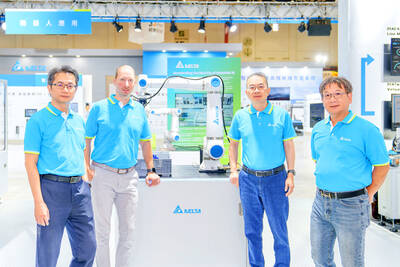Investing in China’s food market is no easy task for Taiwanese restaurateurs, as in addition to significant increases in the minimum wage and rental fees over the past few years, maintaining the original Taiwanese flavors in China poses even more challenges.
Taiwanese restaurants in China tend to opt for Chinese ingredients, because some are not suitable for long-distance shipping. Therefore, delicacies served on the tables of a restaurant’s branches in China may not taste like they do in Taiwan. This situation has led to some Taiwanese restaurateurs closing some of their outlets there or even pulling out of the China market altogether.
Tu Hsiao Yueh (度小月), which features a signature dish of fragrant tan tsai noodles (擔仔麵) with minced meat, is a store that first opened in 1895 in Tainan. It put a great deal of effort into finding stable suppliers for its ingredients before opening its first store in China last month.
Hung Hsiu-hung (洪秀宏), the executive director and a fourth-generation founding family member of Tu Hsiao Yueh, said that through participating in several food exhibitions organized by the Taiwan External Trade Development Council (TAITRA, 外貿協會), he found that many dishes, such as oyster omelets and sausages, which are described as having Taiwanese flavor, do not taste as they should when they are served in China.
To make sure the restaurant could present authentic local Taiwanese cuisine, its staff traveled between Taiwan and China several times for half a year to find stable sources of ingredients that taste truly Taiwanese.
However, the restaurant still insists on using minced meat cooked in Taiwan and pork balls from Hsinchu County.
A similar story can be told for the renowned dumpling house Din Tai Fung (鼎泰豐).
Following the opening of its first branch in China in 2004, the company has opened seven restaurants there at a pace of one store per year to obtain a scale of operation that can allow it to source quality ingredients.
Like its outlets in Taiwan, customers at the Beijing branch can watch the chefs showcase their skills in making Din Tai Fung’s famous hsiao lung bao (小籠包) — juicy pork dumplings — through the glass walls of the kitchen.
Hsu Chih-chiang (許志強), who runs the restaurant’s China operations, said that Ding Tai Fung is very strict in terms of its selection of ingredients, staff hiring, standard operating procedures and the quality of services it provides for its customers.
Beijing resident Chen Lifeng, meanwhile, said Taiwanese food brands are more reassuring to Chinese people in terms of the selection of ingredients, as well as food processing and preparation.
“Chinese care more about eating healthy, and price is no longer the top priority,” Chen said.
As competition in the food and beverage market becomes ever more intense, Hsu suggested that Taiwanese who intend to tap China’s food services market should first embark on field visits, gain an understanding of customers in China and ensure that their enterprises are properly oriented.

SETBACK: Apple’s India iPhone push has been disrupted after Foxconn recalled hundreds of Chinese engineers, amid Beijing’s attempts to curb tech transfers Apple Inc assembly partner Hon Hai Precision Industry Co (鴻海精密), also known internationally as Foxconn Technology Group (富士康科技集團), has recalled about 300 Chinese engineers from a factory in India, the latest setback for the iPhone maker’s push to rapidly expand in the country. The extraction of Chinese workers from the factory of Yuzhan Technology (India) Private Ltd, a Hon Hai component unit, in southern Tamil Nadu state, is the second such move in a few months. The company has started flying in Taiwanese engineers to replace staff leaving, people familiar with the matter said, asking not to be named, as the

The prices of gasoline and diesel at domestic fuel stations are to rise NT$0.1 and NT$0.4 per liter this week respectively, after international crude oil prices rose last week, CPC Corp, Taiwan (台灣中油) and Formosa Petrochemical Corp (台塑石化) announced yesterday. Effective today, gasoline prices at CPC and Formosa stations are to rise to NT$27.3, NT$28.8 and NT$30.8 per liter for 92, 95 and 98-octane unleaded gasoline respectively, the companies said in separate statements. The price of premium diesel is to rise to NT$26.2 per liter at CPC stations and NT$26 at Formosa pumps, they said. The announcements came after international crude oil prices

STABLE DEMAND: Delta supplies US clients in the aerospace, defense and machinery segments, and expects second-half sales to be similar to the first half Delta Electronics Inc (台達電) expects its US automation business to remain steady in the second half, with no signs of weakening client demand. With demand from US clients remaining solid, its performance in the second half is expected to be similar to that of the first half, Andy Liu (劉佳容), general manager of the company’s industrial automation business group, said on the sidelines of the Taiwan Automation Intelligence and Robot Show in Taipei on Wednesday. The company earlier reported that revenue from its automation business grew 7 percent year-on-year to NT$27.22 billion (US$889.98 million) in the first half, accounting for 11 percent

A German company is putting used electric vehicle batteries to new use by stacking them into fridge-size units that homes and businesses can use to store their excess solar and wind energy. This week, the company Voltfang — which means “catching volts” — opened its first industrial site in Aachen, Germany, near the Belgian and Dutch borders. With about 100 staff, Voltfang says it is the biggest facility of its kind in Europe in the budding sector of refurbishing lithium-ion batteries. Its CEO David Oudsandji hopes it would help Europe’s biggest economy ween itself off fossil fuels and increasingly rely on climate-friendly renewables. While